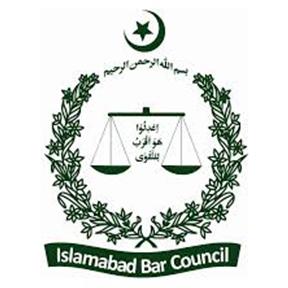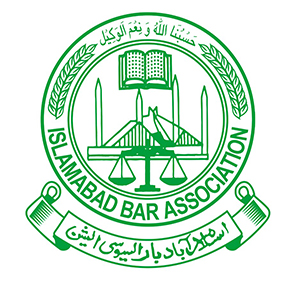Generally, a citizen of a foreign country who wishes to travel to the United States must first obtain a visa, either a nonimmigrant visa for a temporary stay, or an immigrant visa for permanent residence. Visitor visas are nonimmigrant visas for persons who want to enter the United States temporarily for business (B-1 visa), for tourism (B-2 visa), or for a combination of both purposes (B-1/B-2 visa).
B1 (Business Visa Domain):
- Consult with business associates
- Attend a scientific, educational, professional, or business convention or conference
- Settle an estate
- Negotiate a contract
B2 (Tourism Visa Domain):
- Tourism
- Vacation (holiday)
- Visit with friends or relatives
- Medical treatment
- Participation in social events hosted by fraternal, social, or service organizations
- Participation by amateurs in musical, sports, or similar events or contests, if not being paid for participating
- Enrollment in a short recreational course of study, not for credit toward a degree (for example, a two-day cooking class while on vacation)
Schedule an Interview:
Interviews are generally required for visa applicants with certain limited exceptions below. Consular officers may require an interview of any visa applicant.
| If you are age: | Then an interview is: |
| 13 and younger | Generally not required |
| 14-79 | Required (some exceptions for renewals) |
| 80 and older | Generally not required |
You should generally schedule an appointment for your visa interview at the U.S. Embassy or Consulate in the country where you live. You may schedule your interview at another U.S. Embassy or Consulate where you will be present but aware that in some cases it may be more difficult to demostrate your qualifications for a visa outside of the country where you live.
Wait times for interview appointments vary by location, season, and visa category, so you should apply for your visa early. Review the interview wait time for the location where you will apply:
Gather Required Documentation:
Gather and prepare the following required documents before your visa interview:
- Passport valid for travel to the United States – Your passport must be valid for at least six months beyond your period of stay in the United States (unless exempt by country-specific agreements). Each individual who needs a visa must submit a separate application, including any family members listed in your passport.
- Nonimmigrant Visa Application, Form DS-160 confirmation page.
- Application fee payment receipt, if you are required to pay before your interview.
- Photo – You will upload your photo while completing the online Form DS-160. If the photo upload fails, you must bring one printed photo in the format explained in the Photograph Requirements.
Additional Documentation May Be Required”
Review the instructions for how to apply for a visa on the website of the U.S. Embassy or Consulate where you will apply. Additional documents may be requested to establish if you are qualified. For example, additional requested documents may include evidence of:
- The purpose of your trip,
- Your intent to depart the United States after your trip, and/or
- Your ability to pay all costs of the trip.
Evidence of your employment and/or your family ties may be sufficient to show the purpose of your trip and your intent to return to your home country. If you cannot cover all the costs for your trip, you may show evidence that another person will cover some or all costs for your trip.
Attend Your Visa Interview:
A consular officer will interview you to determine whether you are qualified to receive a visitor visa. You must establish that you meet the requirements under U.S. law to receive a visa. Ink-free, digital fingerprint scans are taken as part of the application process. They are usually taken during your interview, but this varies based on location.
After the visa is approved, you may need to pay a visa issuance fee (if applicable to your nationality), and make arrangements for the return of the passport and visa to you. Review the visa processing times to learn more.
After your visa interview, the consular officer may determine that your application requires further administrative processing. The consular officer will inform you if this required.
Please note that US B1/B2 based on the visa interview and it is art and technique how to respond the specific questions of visa officers which impacts on decision making for approval of visa. Always consult with someone professional Immigration Lawyer who will suggest you the expected questions and the way how to respond such questions according to the satisfaction of the visa office.
Entering the United States:
A visa allows a foreign citizen to travel to a U.S. port-of-entry (generally an airport) and request permission to enter the United States. A visa does not guarantee entry into the United States. The Department of Homeland Security (DHS), U.S. Customs and Border Protection (CBP) officials at the port-of-entry have authority to permit or deny admission to the United States. If you are allowed to enter the United States, the CBP official will provide an admission stamp or a paper Form I-94, Arrival/Departure Record. Learn more about admissions and entry requirements, restrictions about bringing food, agricultural products, and other restricted/prohibited goods.
Failure to depart:
Failure to depart the United States on time will result in being out of status. Under U.S. law, visas of individuals who are out of status are automatically voided (Section 222(g) of the Immigration and Nationality Act). Any multiple entry visa that was voided due to being out of status will not be valid for future entries into the United States. Failure to depart the United States on time may also result in you being ineligible for visas in the future.
Change of Status:
If your plans change while in the United States (for example, you marry a U.S. citizen or receive an offer of employment), you may be able to request a change in your nonimmigrant status to another category through U.S. Citizenship and Immigration Services (USCIS). See Change My Nonimmigrant Status on the USCIS website to learn more.
While you are in the United States, receiving a change of status from USCIS does not require you to apply for a new visa. However, once you depart the United States you must apply for a new visa at a U.S. Embassy or Consulate in the appropriate category for your travel.
Additional Information:
- An individual on a visitor visa (B1/B2) is not permitted to accept employment or work in the United States.
- There is no guarantee you will be issued a visa. Do not make final travel plans or buy tickets until you have a visa.
- A valid U.S. visa in an expired passport is still valid. Unless canceled or revoked, a visa is valid until its expiration date. If you have a valid visa in your expired passport, do not remove it from your expired passport. You may use your valid visa in your expired passport along with a new valid passport for travel and admission to the United States
Visit Visa (For Medical Treatment):
If you are seeking medical treatment in the United States, the consular officer may ask for further documents at your visa interview, which may include:
- Medical diagnosis from a local physician, explaining the nature of the ailment and the reason you need treatment in the United States.
- Letter from a physician or medical facility in the United States, stating they are willing to treat your specific ailment and detailing the projected length and cost of treatment (including doctors’ fees, hospitalization fees, and all medical-related expenses).
- Proof that your transportation, medical, and living expenses in the United States will be paid. This may be in the form of bank or other statements of income/savings or certified copies of income tax returns (either yours or the person or organization paying for your treatment).
Visa Denial / Refusal:
U.S. law generally requires visa applicants to be interviewed by a consular officer at a U.S. Embassy or Consulate. After relevant information is reviewed, the application is approved or denied, based on standards established in U.S. law.
While the vast majority of visa applications are approved, U.S. law sets out many standards under which a visa application may be denied. An application may be denied because the consular officer does not have all of the information required to determine if the applicant is eligible to receive a visa, because the applicant does not qualify for the visa category for which he or she applied, or because the information reviewed indicates the applicant falls within the scope of one of the inadmissibility or ineligibility grounds of the law. An applicant’s current and/or past actions, such as drug or criminal activities, as examples, may make the applicant ineligible for a visa.
If denied/refusal of visa, in most cases the applicant is notified of the section of law which applies. Visa applicants are also advised by the consular officer if they may apply for a waiver of their ineligibility. Several of the most common reasons for visa ineligibilities are explained below. For more information, review the visa ineligibilities in the Immigration and Nationality Act (INA).
If a consular officer finds you are not eligible to receive a visa under U.S. law, your visa application will be denied (refused), and you will be provided a reason for the denial. There are many reasons a visa applicant could be found ineligible for a visa. These reasons, called ineligibilities, are listed in the Immigration and Nationality Act (INA) and other immigration laws. Some ineligibilities can be overcome, either by you, the visa applicant, or the U.S. petitioner, in certain immigrant visa cases. Other ineligibilities are permanent. This means that every time you apply for a visa, you will be found ineligible under the same section of law, unless a waiver of that ineligibility is authorized by the Department of Homeland Security.
Here are some examples of visa ineligibilities, which are explained further below.
The visa applicant:
- Did not fully complete the visa application and/or provide all required supporting documentation
- Did not establish eligibility for the visa category being applied for or overcome the presumption of being an intending immigrant
- Was convicted of a crime involving moral turpitude
- Was convicted of a drug violation
- Has two or more criminal convictions for which the total sentence of confinement was 5 years or more
- Did not provide an adequate affidavit of support when one was required; therefor denied under public charge
- Misrepresented a material fact or committed fraud to attempt to receive a visa
- Previously remained longer than authorized in the United States
What is a waiver?
The Immigration and Nationality Act (INA) contains provisions that may allow a visa applicant who was denied a visa for a particular ineligibility to apply for a waiver of that ineligibility. The Department of Homeland Security (DHS) adjudicates all waivers of ineligibility. Waivers are discretionary, meaning that there are no guarantees that DHS will approve a waiver for you. If the waiver is approved, you may be issued a visa.
Can every applicant who is ineligible apply for a waiver?
No. If you are found ineligible for a visa, the consular officer will inform you if can apply for a waiver of ineligibility. The following factors will determine if you may apply for a waiver:
- Whether a waiver of ineligibility is available for the particular section of law you are ineligible under;
- You must be fully qualified for the visa you applied for, except for that specific ineligibility, in order to be able to apply for the waiver;
- If you are applying for a nonimmigrant visa, generally whether the consular officer who found you ineligible recommends to DHS that you receive a waiver; and
- If you are applying for an immigrant visa, whether a waiver is available for your particular situation. (For example, for certain visa ineligibilities when applying for an immigrant visa, you can only apply for a waiver if you have a U.S. citizen or lawful permanent resident spouse or parent who would endure extreme hardship if you were not able to immigrate.)
Re-Apply:
After being found ineligible for a visa, you may reapply in the future. If you reapply for a visa after being found ineligible, with the exception of 221(g) refusals, you must submit a new visa application and pay the visa application fee again. If you were found ineligible under section 214(b) of the INA, you should be able to present evidence of significant changes in circumstances since your last application.
Visa Renewal:
Whether you are applying for the first time or renewing your visa, you will use the same application process. Some applicants seeking to renew their visas in certain visa classes may be eligible for the Interview Waiver (IW) which allows qualified individuals to apply for visa renewals without being interviewed in person by a U.S. consular officer.
If you are planning to apply first time, re-apply, have been refused visa and applying for waiver and intend to deal with the denial of visa, contact us for professional case working which will maximize your chances of success.
Here at Qazi Law Associates, our Immigration Lawyer will handle your case inclusive of:-
-Pre-guidance/ advise
-Complete Legal assistance
-Online Form
-Fee Submission
-Interview Appointment (subject to availability of auto slot)
-Complete visa case file preparation comprising of all required Visa documentation including following accomplishments: –
-Certified translation
-Legal documentation (if so required)
-Foreign notarization/attestation of documents
-Interview preparation/guidance
-All things to do until final interview/outcome by US Embassy
If you have any questions or need further information, please do not hesitate to schedule of appointment for free consultation session.








